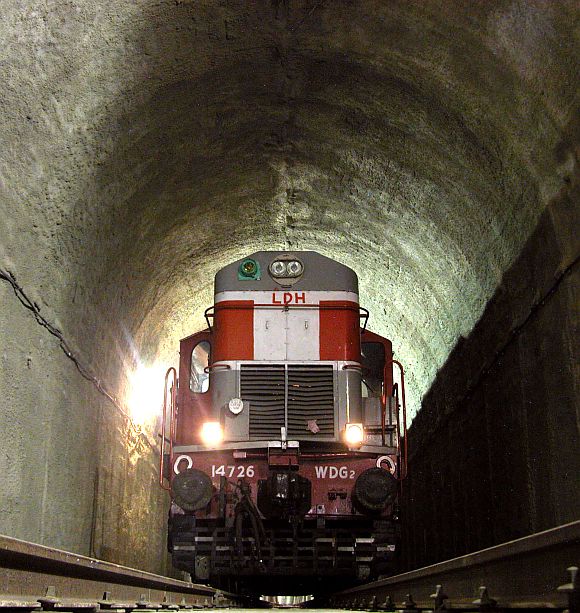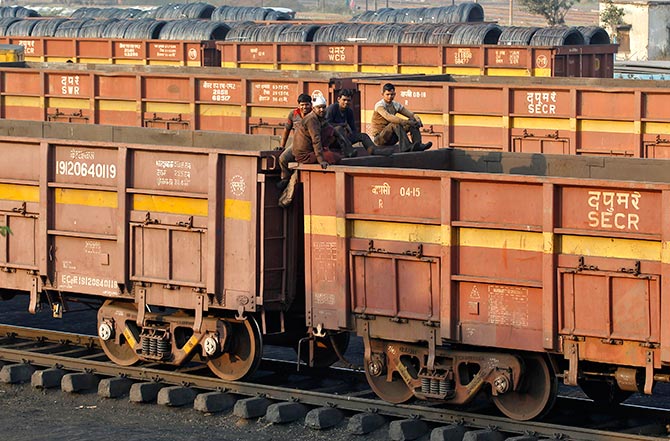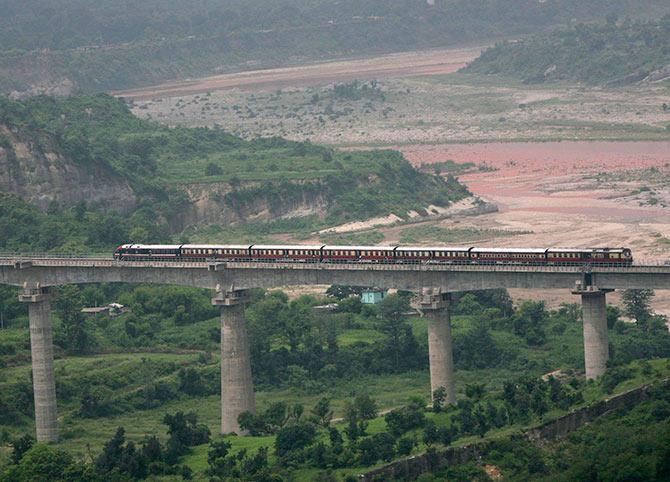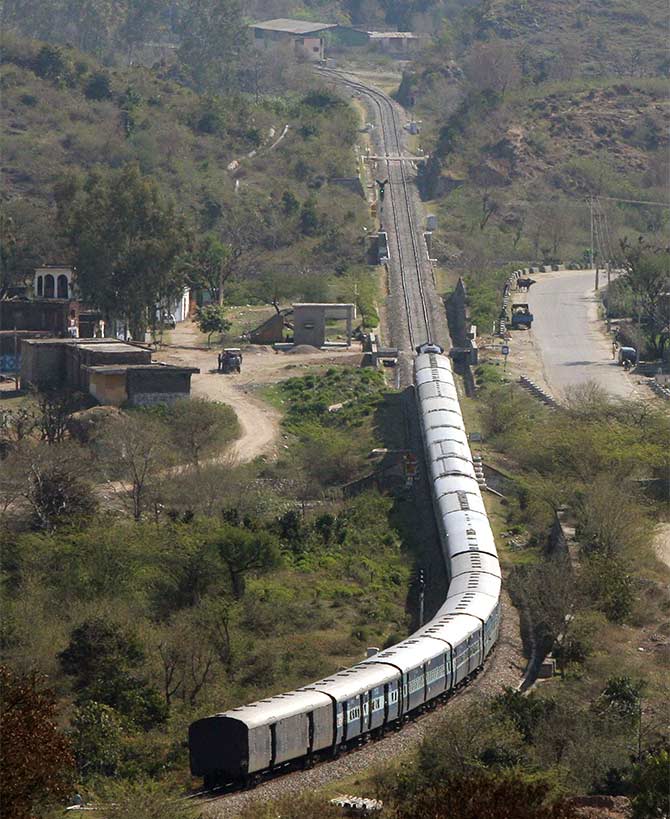
The lifeline of a Budget is how it changes the tariffs either by offering some concessions or raising the rates.
Railway Minister D V Sadananda Gowda’s Budget on Tuesday had none of that - no change in passenger fares or in freight rates.
And that is not because he deliberately wished to rob his first Railway Budget of all that excitement. The fact is almost about three weeks ago, the politically astute Mr Gowda had announced a hike of 14.6 per cent in passenger fares and 6.5 per cent in freight rates.
…
Please click here for the Complete Coverage of Budget 2014 -15

With those increases already in place and the usual public protests over the increases along with a partial rollback out of his way, Mr Gowda could easily wax eloquent on his grand vision of how to make the Indian Railways an engine of development for the Indian economy through execution of a series of projects and introduction of initiatives aimed at improving passenger safety and amenities.
And all this was achieved with the least number of interruptions in the presentation of Railway Budgets seen in the Lok Sabha over the last several years!
Of course, one of the reasons why Mr Gowda managed to avoid the kind of ruckus most of his predecessors always created while reading out the Railway Budget speech is that he chose to structure his speech a little differently.
In the past, most railway ministers would announce the new train services in the middle of their speeches.
…

So, the interruptions would start fairly early in the speech every time a new train service was announced. Mr Gowda chose to deviate from this pattern. At the end of his Budget speech, he included two long lists of new train services, which he read out.
But this was almost at the fag end of the speech, limiting the scope for members of Parliament to raise their voices in protest over the proposal for new train services.
But the exclusion of a fare or freight rate hike from the Railway Budget this time had another major significance. And this was because Mr Gowda also reminded the Lok Sabha members that future revisions in fares and freight rates would take place in line with the changes in the fuel adjustment component, or FAC, in the fare and freight structure.
In other words, if the fuel costs go up, the next revision in passenger fares or freight rates need not wait for the presentation of the Railway Budget for 2015-16. Mr Gowda noted that “periodic revision in passenger fare and freight rates, as approved by this august House, will be linked to revisions in fuel prices in order to insulate the Railway revenues from fuel cost escalation”.
…

This will undoubtedly be a major boost for the Indian Railways’ revenues. Note that the traffic revenue growth projections for the current year at 14 per cent have been quite conservative, even after taking into account the impact of the increase in passenger fares and freight rates effected on June 20.
Such conservatism is perhaps explained by the Indian Railways’ realisation that it is now insured against fuel shocks in case international crude oil prices spike during the year. In other words, its revenue numbers are likely to carry greater conviction and the instances of overstated revenue projections may well be a thing of the past.
Taken together with Mr Gowda’s announcement of a major structural reform of the Railway Board, the flexibility of allowing fuel cost increases to be passed through without long delays has the potential of bringing about a turnaround in the finances of the Indian Railways.
…
Please click here for the Complete Coverage of Budget 2014 -15

The reform of the Railway Board envisages that the role of policy formulation will be separated from that of implementation. Clearly, an organisational revamp in the Indian Railways is on the cards, in which a new body is likely to be created with the responsibility of implementing the policies that are made.
At present, it is the Railway Board that makes policies and is also responsible for implementing them. Separating the two functions and entrusting them to two different bodies would go a long way in improving efficiency at all levels.
Interestingly, this is somewhat similar to the recommendation that the Union finance ministry is reviewing at present for its revenue department. The tasks of revenue collections or tax administration and the responsibility of framing revenue policies are now vested in the same department.
As a consequence, distortions have been introduced in the manner in which revenues are collected.
The decision of the Indian Railways to accept the basic logic of reform by promising to separate policy formulation from implementation augurs well for governance and it is to be hoped that the finance ministry, too, accepts the same logic and moves in a similar direction.
Please click here for the Complete Coverage of Budget 2014 -15